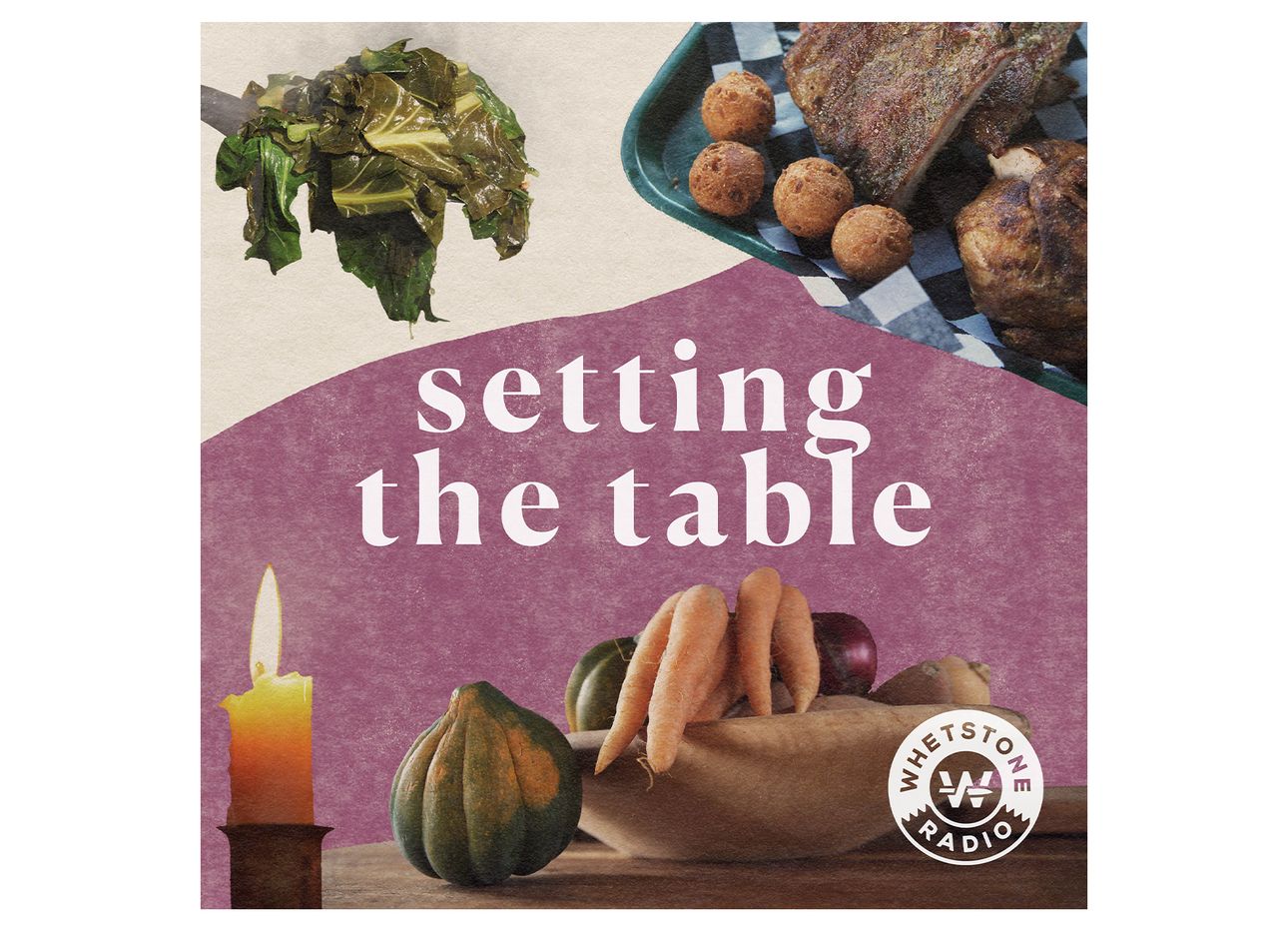
A Podcast That Illuminates Black Americans’ Influence on U.S. Cuisine
“African Americans have played a major role in creating the foundation for what we know as American food,” food anthropologist and writer Debra Freeman says on the trailer for Setting the Table, the podcast she hosts. “From soul food to barbecue and almost everything in between, African American cuisine has essentially changed the palate of America.” It’s a subject fitting for Freeman, whose work explores the intersection of race, culture, and food. Curious and perceptive, she skillfully interviews chefs, food historians, and other culinary experts, illuminating how Black Americans have been—and still are—integral to shaping the food and drinks we consume.
Produced by Whetstone magazine’s radio arm, the show weaves Freeman’s personal memories with the history of Black foodways, creating an engaging tapestry of stories. The details of each episode’s theme can conjure up a range of emotions: One show, focused on the Great Migration, details how Black Americans moved from the South and settled in cities in the North and West—and brought their food culture with them. Freeman explains how Southern staples such as fried chicken, biscuits and gravy, and macaroni and cheese spread across the country, helping to build Black communities along the way.
In another episode, Freeman unpacks the complicated relationships between Black Americans and agriculture. Going back to the failed promises of Reconstruction, when newly freed Black Americans were meant to recieve access to resources (such as land) to help them succeed outside of enslavement, she outlines how sharecropping, discriminatory federal policies, and racist financial lending practices led to a steep decline in Black farmers. Later, Freeman turns her focus to the present, juxtaposing this painful history with optimistic conversations between voices from today’s re-emerging Black farming community, including Ashlee Johnson-Geisse, a Black queer farmer who started Brown Girl Farms during the height of the pandemic.
Other segments delve into Black brewing and distilling, and the often overlooked contributions of Black Americans to the practice. One guest, Victoria Eady Butler of Uncle Nearest Premium Whiskey—named after Nathan “Nearest” Green, who is believed to have taught Jack Daniel the craft of distilling—proudly follows in her great-great-grandfather’s footsteps. “We truly are our ancestor’s wildest dream,” she says. Freeman also investigates early pitmasters and barbecue traditions in Virginia and Los Angeles; speaks with Black chefs about the challenge of innovating in soul food while staying true to family recipes; and links the Civil Rights and Black Power movements to Black cuisine by telling the stories of Aylene Quin, who fed those taking part in Mississippi’s boycotts, and Cleo Silvers, who participated in the Black Panther Party’s Free Breakfast for Children program. (While Setting the Table’s first season recently wrapped, a second season is in the works, slated for mid-2023, with topics including Gullah-Geechee cuisine, Black mixologists and bartenders from the past and present, and the historic Philadelphia caterers during Reconstruction.)
Throughout the program, Freeman makes its premise resoundingly clear: Black Americans have never stopped carrying their culinary legacies forward. To the delight of the country’s taste buds, their descendants continue this tradition by creating, and taking up space in, the next chapter of food history.